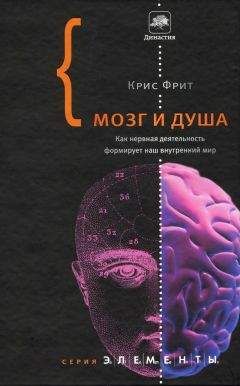Richard Bandler - Frogs into Princes: Neuro Linguistic Programming

Скачивание начинается... Если скачивание не началось автоматически, пожалуйста нажмите на эту ссылку.
Жалоба
Напишите нам, и мы в срочном порядке примем меры.
Описание книги "Frogs into Princes: Neuro Linguistic Programming"
Описание и краткое содержание "Frogs into Princes: Neuro Linguistic Programming" читать бесплатно онлайн.
What People are saying about this book:
"A readable, practical, and entertaining book about a challenging, original, and promising new discipline. I recommend it."—Dan Goleman, Associate Editor of Psychology Today.
"NLP represents a huge quantum jump in our understanding of human behavior and communication. It makes most current therapy and education totally obsolete."—John O. Stevens, author of Awareness and editor of Gestalt Therapy Verbatim and Gestalt is.
"This book shows you how to do a little magic and change the way you see, hear, feel, and imagine the world you live in. It presents new therapeutic techniques which can teach you some surprising things about yourself."—Sam Keen, Consulting Editor of Psychology Today and author of Beginnings Without End, To a Dancing God, and Apology for Wonder.
"How tiresome it is going from one limiting belief to another. How joyful to read Bandler and Grinder, who don't believe anything, yet use everything! NLP wears seven-league-boots, and takes 'therapy' or 'personal growth' far, far beyond any previous notions."—Barry Stevens, author of Don't Push the River, and co-author of Person to Person.
"Fritz Perls regarded John Stevens' Gestalt Therapy Verbatim as the best representation of his work in print. Grinder and Bandler have good reason to have the same regard for Frogs into Princes. Once again, it's the closest thing to actually being in the workshop."— Richard Price, Co-founder and director of Esalen Institute.
That to me constitutes an altered state of consciousness. The way to do it is to first find out what's there, and then do something that makes something else come into consciousness. Once you are directing an altered state of consciousness, you can begin to make maneuvers that add options, add choices.
Woman: I think at that point I was aware of what was happening and I could stop it if I had wanted to, so—
But you didn't.
Woman: That's right, but I don't know about this argument of whether you can make somebody go into an altered state or not. I'm still not—
Well, it's a stupid argument to begin with, because the only people who are going to resist you are people who know that you are doing it. And then I can get somebody to resist me right into a trance, because all I have to do is to instruct them to do one thing and they'll do the opposite. They'll enter an altered state immediately. An example of that is a thing that mothers often say to children: "Don't laugh."They induce altered states in their children by playing polarity. Kids don't have a choice about that until they have requisite variety.
Who can make whom do what, is a function of requisite variety. If you have more flexibility in your behavior than your hypnotist, then you can go into a trance or you can stay out of a trance, depending upon what you want to do. Henry Hilgard made up one hypnotic induction and administered it to ten thousand people. Sure enough, he found out that only a certain percentage of them went into a trance. The percentage that went into a trance were the ones that were either pre-adapted or flexible enough to adapt to that hypnotic induction. The rest of the people who were not flexible enough to adapt to that particular hypnotic induction could not go into a trance.
Going into an altered state is nothing weird. You all do it all the time. The question is whether you use the altered state to produce change, and if so, how are you going to use it? Inducing it is not that difficult. All you have to do is talk about parameters of experience that the person isn't aware of. The question is "How will you do it with whom?" If you have a person who's very visual, you're going to do something that's very different than with someone like this woman here who talks to herself a lot and pays attention to the tightness in her jaw. For her, entering a state of consciousness where she makes rich, focused images would be altered. But for a visual person that would be the normal state. In an altered state a person has more and different choices than she does in her normal conscious waking state. Many people think that going into a trance means losing control. That's where this question "Can you make somebody go into a trance?" comes from. What you're making them do is to go into a state where they have more choices. There's a huge paradox there. In an altered state of consciousness you do not have your usual model of the world. So what you have is an infinite number of possibilities.
Since I can represent states in terms of representational systems, I can use this as a calculus to compute what else must be possible. I can compute altered states that have never existed and achieve them. I didn't find that possibility available to me when I was a gestalt therapist or when I did other forms of therapy. Those models didn't offer these alternatives. If you want to learn in detail how to induce and utilize altered states, read our book Trance-formations: NLP and the Structure of Hypnosis.
I have a student now who I think is pretty good. One of the things that I appreciate about him is that instead of "working on himself," he takes the time to enter altered states and give himself new realities. I think most of the time when therapists work on themselves, all they do is confuse themselves utterly and completely. Once a woman hired me to do a workshop. She called me up three weeks before the workshop and said that she had changed her mind. So I called my attorney and sued her. She had months and months and months to plan the workshop and do what she had said she would do. She had spent all that time "working on" whether she was ready to do this or not. Her therapist called me up to try to persuade me to not sue her. He said "Well, it's not like she hasn't spent time on it. She's been working on this for months about whether she was ready to do this workshop."
It seems to me that there was one obvious thing she could have done: she could have called me up months and months earlier and told me that she was unsure. But instead of doing that, she tried to work out external experience internally and consciously. And I think that's a paradox, as we've said over and over again. When people come for therapy, if they had the resources consciously available they would have changed already. The fact that they haven't is what brings them there. When you, as a therapist, consciously try to change yourself, you're setting yourself up for confusion, and you're likely to go into all kinds of interesting, but not very useful, loops.
One student of mine came to me first as a client. He was a junior in college at the time, and he said "I have a terrible problem. I meet a girl, things go really fine, and then she comes and sleeps with me and everything is great. But the next morning as soon as I wake up, I think 'Well, either I have to marry her or kick her out of bed and never see her again.'"
At that moment in time I was sort of amazed that a human being had actually said that to me! I will never cease to be amazed about how people can limit their world of experience. In his world there were only those two choices!
I was working with John at the time, and John looked at him and said "Has it ever occurred to you to just say 'Good morning'?" and the student went "Uhhhhhhhhh!" I think that stunk as a therapeutic maneuver, because now what's he going to do? He's going to say "Good morning," and then either put his foot in the center of her back and kick her out of bed, or propose marriage. There are more possibilities than that. But as he entered that state of confusion and went "Uhhhhhhhhh!" I reached over and said "Close your eyes." And John said "And begin to dream a dream in which you learn just how many other possibilities there are, and your eyes will be unable to open until you find them." He sat there for 5 and a half hours. We went out in the other room. Six and a half hours he was there coming up with possibilities. He couldn't leave because his eyes wouldn't open. He tried standing and walking, but he couldn't find the door. All of the possibilities that he thought of in that six and a half hour period had been available to him all along, but he had never done anything to access his own creativity.
Reframing is a way of getting people to say "Hey, how else can I do this?" In a way it's the ultimate criticism of a human being, saying "Stop and think about your behavior, and think about it in the following way: Do something new; what you're doing doesn't work! Tell yourself a story, and then come up with three other ways of telling the story, and suddenly you have differences in your behavior.
There's an amazing thing about people: when they find something that doesn't work, they do it harder. For example, go to a junior high school and watch kids on the playground. One kid comes up to another one and pushes him. So the other kid sticks his chest out. The next time the kid pushes him he can push him even better because he has a firm chest to put his hand against.
One thing that really hasn't been understood is what's possible if instead of approaching a problem directly, you approach it indirectly. Milton Erickson did what I think was one of the shortest cures that I've ever heard about. The story that I heard was that he was at the VA hospital in Palo Alto in 1957, and psychiatrists were waiting in line with patients out in the hall. They were coming in one at a time, and Milton was doing a little magic, doing this and doing that. Then they went back out in the hall and talked about how Milton wasn't really doing these things and he was a charlatan.
A young PhD psychologist, who was about as straight as you could get, brought in a seventeen-year-old adolescent who had been knifing people and doing anything he could possibly conceive of that was damaging. The kid had been waiting in line for hours and people had been coming out in somnambulistic trances; the kid was going " Ahhhhhhhh ... What are they going to do to me?" He didn't know if he was going to get electric shock or what. They brought him in and there was this man with two canes standing there behind the table, and an audience in the room. They walked up in front of the table. Milton said "Why have you brought this boy here?" And the psychologist explained the situation, gave the case history as best he could. Milton looked at the psychologist and said "Go sit down." Then he looked at the young boy and said "How surprised will you be when all your behavior changes completely next week?" The boy looked at him and said "I'll be very surprised!" And Milton said "Get out. Take these people away."
The psychologist assumed that Milton had decided not to work with the boy. Like most psychologists, he missed the whole thing. Next week, the boy's behavior changed completely, from top to bottom and from bottom to top. The psychologist said that he could never figure out what it was that Milton did. As I understand it, Milton only did one thing. He gave that boy the opportunity to access his own unconscious resources. He said "You will change, and your conscious mind won't have anything to do with it. "Never underestimate the usefulness of just saying that to people. "I know that you have a vast array of resources available to you that your conscious mind doesn't even suspect. You have the ability to surprise yourself, each and every one of you. "If you really congruently act as if people have the resources and are going to change, you begin to induce impetus in the unconscious.
One of the things that I noticed about Milton when I first went to see him, was the incredible respect that he has for unconscious processes. He is always trying to get demonstrations back and forth between conscious and unconscious activity.
In linguistics there is something called "the tip of the tongue" phenomenon. Do you all know what that is? That's when you know a word and you even know that you know the word, but you can't say what it is. Your conscious mind even knows that your unconscious mind knows what the word is. I remind people of that as evidence that their conscious mind is less than the tip of the iceberg.
I once hypnotized a linguistics professor and sent his conscious mind away into a memory. I asked if his unconscious mind knew what the "tip of the tongue" phenomenon was—because he had demonstrated it in many of his classes. His unconscious mind said to me "Yes, I know what it is." I said "Why is it that if you know a word, you don't present it to his conscious mind?" And he said to me "His conscious mind is too damn cocky."
In our last workshop we were doing some things with strategies, and we programmed a woman to forget what her name was. A man there said "There's no way that I could possibly forget my name." I said "What is your name?" And he said "I don't know! I said "Congratulate your unconscious mind, even though you don't have one."
It is amazing to me that hypnosis has been so systematically ignored. I think it's been ignored mostly because the conscious minds who practice it don't trust it. But every form of therapy I've studied has trance experiences available in it. Gestalt is founded on positive hallucination. TA is founded on dissociation. They all have great verbal inductions.
At the last workshop we did there was a guy who was skeptical through most of the day. As I walked by, during an exercise, he was saying to his partner "Can you allow yourself to make this picture?" That's a hypnotic command. He had asked me downstairs if I believed in hypnosis! What I believe is that it's an unfortunate word. It's a name given to lots and lots of different experiences, lots of different states.
We used to do hypnotic inductions before we did reframing. Then we discovered that we could do reframing without having to put people into trance. That's how we got into Neuro Linguistic Programming. We thought "Well, if that's true, then we should be able to reframe people into doing every deep trance phenomenon that we know about." So we took a group of twenty people and in one evening we programmed all the people in that group to do every deep trance phenomenon we could remember having read about anywhere. We found that we could get any "deep trance phenomenon" without doing any ritualized induction. We got amnesia, positive hallucination, tone-deafness, color blindness—everything. One woman negatively hallucinated Leslie for the entire evening. Leslie would walk over and pick up the woman's hand; her hand would float up and she had no idea why. It was like those cartoons about ghosts and stuff. That's as good as any negative hallucination we ever got doing hypnosis.
In the phobia technique where you see yourself standing there, and then float out of your body and see yourself there watching the younger you—that's a deep trance phenomenon. It requires positive hallucination, and getting out of your own body. That's fairly amazing. Yet all you have to do is give somebody the explicit instructions, and out of a hundred people, ninety-five can do it quickly and easily as long as you don't act as if it's hard. You always act as if you're leading up to something else that's going to be difficult, so they go ahead and do all the deep-trance phenomena and alter their state.
Neuro Linguistic Programming is a logical step higher than anything that has been done previously in hypnosis or therapy only in the sense that it allows you to do things formally and methodically. NLP allows you to determine exactly what alterations in subjective experience are necessary to accomplish a given outcome. Most hypnosis is a fairly random process: If I give someone a suggestion, that person has to come up with a method of carrying it out. As a Neuro Linguistic Programmer, even if I use hypnosis, I would describe exactly what I want that person to do in order to carry out the suggestion. That's the only important difference between what we're doing here and what people have been doing with hypnosis for centuries. It's a very important difference, because it allows you to predict outcomes precisely and avoid side-effects.
Using reframing and strategies and anchoring—all the tools of Neuro Linguistic Programming—you can get any response you can get through hypnosis. But then that's only one way to go about it. Doing it through official hypnosis is also interesting. And combining NLP and hypnosis is even more interesting.
For instance there is the "dreaming arm" technique that works great with children—and adults, too. First you ask "Did you know you have a dreaming arm?" When you have their interest, you ask "What is your favorite TV show?" As they access visually, you notice which side their eyes go to. As they do that, you lift up their arm on the same side, and say "I'm going to lift your arm, and your arm will go down only as fast as you watch that whole TV show, and you can begin right now. So the kid watches his favorite TV show. You can even reach out and stop their arm for a moment and say "It's time for a commercial" and install messages.
Подписывайтесь на наши страницы в социальных сетях.
Будьте в курсе последних книжных новинок, комментируйте, обсуждайте. Мы ждём Вас!
Похожие книги на "Frogs into Princes: Neuro Linguistic Programming"
Книги похожие на "Frogs into Princes: Neuro Linguistic Programming" читать онлайн или скачать бесплатно полные версии.
Мы рекомендуем Вам зарегистрироваться либо войти на сайт под своим именем.
Отзывы о "Richard Bandler - Frogs into Princes: Neuro Linguistic Programming"
Отзывы читателей о книге "Frogs into Princes: Neuro Linguistic Programming", комментарии и мнения людей о произведении.










